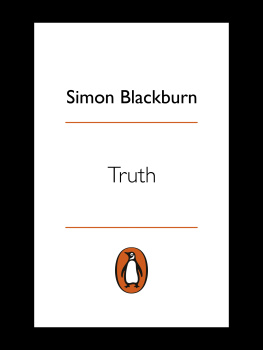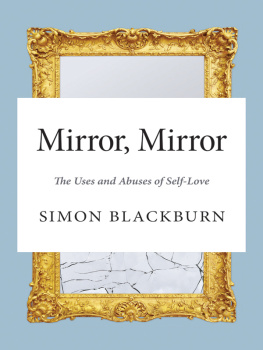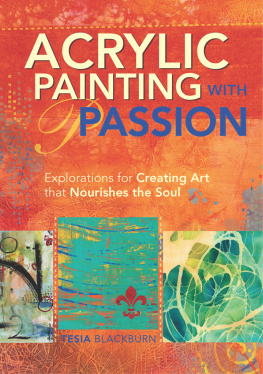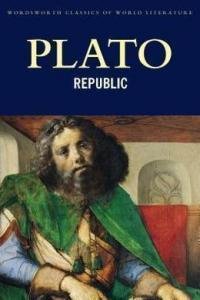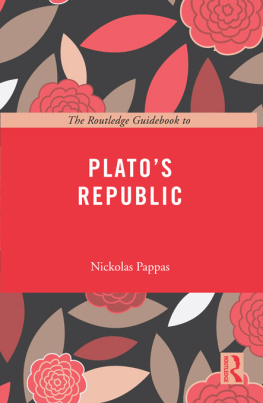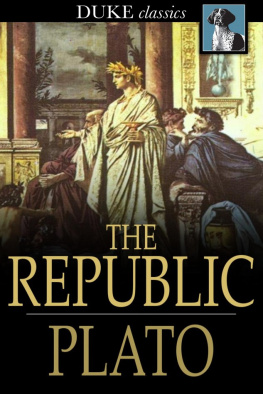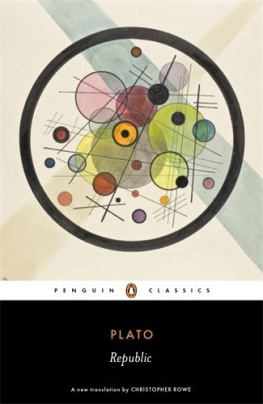Platos Republic
A Biography
Simon Blackburn is professor of philosophy at the University of Cambridge. He is the author of Think, Truth and the Oxford Dictionary of Philosophy.
Other titles in the Books That Shook the World series:
Available now:
Darwins Origin of Species by Janet Browne
Thomas Paines Rights of Man by Christopher Hitchens
The Quran by Bruce Lawrence
Adam Smiths On the Wealth of Nations by P. J. ORourke
Marxs Das Kapital by Francis Wheen
Forthcoming:
The Bible by Karen Armstrong
Machiavellis The Prince by Philip Bobbitt
Homers The Iliad and the Odyssey by Alberto Manguel
Carl von Clausewitzs On War by Hew Strachan

First published in Great Britain in hardback in 2006 by Atlantic Books, an imprint of Grove Atlantic.
This paperback edition published in Great Britain in 2007 by Atlantic Books.
Copyright Simon Blackburn 2006
The moral right of Simon Blackburn to be identified as the author of this work has been asserted in accordance with the Copyright Designs and Patents Act of 1988.
All rights reserved. No part of this publication may be reproduced, stored in a retrieval system, or transmitted in any form or by any means, electronic, mechanical, photocopying, recording, or otherwise, without the prior permission of both the copyright owner and the above publisher of this book.
9 8 7 6 5 4 3 2 1
A CIP catalogue record for this book is available from the British Library
ISBN 978 1 84354 347 3
eISBN 978 0 85789 854 8
Designed by Richard Marston
Typeset by Avon DataSet Ltd, Bidford on Avon, Warwickshire B50 4JH
Printed in Great Britain
Atlantic Books
An imprint of Grove Atlantic Ltd
Ormond House
2627 Boswell Street
London WC1N 3JZ
www.groveatlantic.co.uk
PREFACE

I cannot say that this was a book I had been waiting to write. In fact, when I was approached with the prospect, my immediate instinct was to feel flattered, but to decline gracefully. As I explain further in the Introduction, I am neither a classicist nor a historian, even of the amateur variety. And worse than that, if in the present context there can be anything worse than that, I had never felt Plato to be a particularly congenial author. In some respects, as may be apparent from the book, I still do not. On the other hand, it is not really good enough for a philosopher to confess to a Plato-sized blindspot. He is too important, and too entrenched in the Western (and Islamic) tradition to ignore. The question has to be how we are to come to terms with him. Readers wanting to spoil the plot and skip to my own response to that, may read the last sentence of the book.
While I was dithering, I had the good luck to mention the invitation to a friend, the fine classical philosopher Julia Annas, whose own work on Plato infuses this book more than may be apparent. To my surprise, instead of laughing her head off, as she well might have, she immediately offered guidelines and support, even copying various papers and pieces of secondary literature for me herself. This great generosity made me think that perhaps the project was possible after all. Further reading, although filling me with dread at the sheer quantity of classical scholarship that has accumulated over the ages, also suggested that Republic has sustained, and still sustains, a wealth of philosophy, politics, and ethics about which one ought to have something to say. So I began to see how interesting the challenge might be, and of course once that idea has taken hold, the rest follows.
I suppose Julia did not singlehandedly conquer my diffidence at entering these unfamiliar waters, or I would have brashly knocked on more distinguished doors here in Cambridge, or in other centres where people who have devoted their lives to Plato are found. No doubt the book would have been better had I done so. But it would also have been longer, and I fear it would have tried the patience of my editor Toby Mundy even more than it has already done, as doubts and difficulties multiplied, turning into delays and rewrites, potentially without end. As it is, apart from gratefully receiving help from Paul Cartledge over Thucydides, I read what I could in Plato with mounting excitement, and before that could begin to cool, wrote the essay without any more ado.
It follows that my principal debts are to my agent, Catherine Clarke, who adroitly managed the initial flattery, and to Julia Annas for the confidence necessary to get started. Alice Hunt read the first draft with exemplary care, and suggested many improvements that I have tried to incorporate. I owe thanks to the University of Cambridge and to Trinity College for a period of sabbatical leave during which the work was done, and to my wife and family for putting up with a great deal of silence, abstraction and sheer exasperation, while I fought, as generations before me have done, with the greatest and most fertile single book of the Western philosophical canon.
Simon Blackburn
Cambridge
Spring 2006
A NOTE ON TRANSLATIONS AND EDITIONS

Medieval writers knew Plato through translations into Latin, not directly from Greek texts, but from Arabic versions, themselves translated from Greek texts disseminated to Arabic scholars from the Byzantine world. The earliest authoritative translation of Plato to be disseminated in Western Europe was the three-volume Renaissance edition of the scholar Henri Estienne (in Latin, Stephanus), published in Geneva in 1578. It juxtaposed pages of the Greek text of Plato with a Latin translation. From it derives the initially off-putting notation for referring to passages in Platos works. The numbers, which are printed in the margins in all decent editions, are known as Stephanus numbers. They are page numbers from this edition, followed by letters from a e referring to sections of the page. The system makes it easy to locate passages without being confined to one or another modern edition or translation. In the present volume I refer to passages in the Republic by prefacing the Stephanus number with the number of the Book in question, from I to X, since Republic is somewhat arbitrarily divided into ten chapters or books.
Translations of Plato into English were slower to arrive. The first well-known translation from the Greek was that of Thomas Taylor and Floyer Sydenham, published in London in 1804. This was the edition that would have been known to Coleridge and the Romantics. Unfortunately, James Mill (John Stuarts father) said of Thomas Taylor that he has not translated Plato; he has travestied him, in the most cruel and abominable manner. He has not elucidated, but covered him over with impenetrable darkness.
The Victorian interest in Plato produced a translation by Davis and Vaughan, in 1858, and the classic edition by Benjamin Jowett, still one of the most widely disseminated English versions of the dialogues, first published by Oxford University Press in 1871. However, classical scholars are hard to please in these matters, and the exacting scholar A. E. Housman is reported to have described Jowetts as the best translation of a Greek philosopher which has ever been executed by a person who understood neither philosophy nor Greek. Other scholars have not been daunted by the risk of such a reception, and Jowett was followed by Desmond Lee, Francis Cornford, Paul Shorey, I. A. Richards (into basic English), A. D. Lindsay, Allan Bloom, and many others down to the present day. The Worlds Classics edition by Robin Waterfield that I have used is clear and straightforward, and has excellent notes.
Next page

